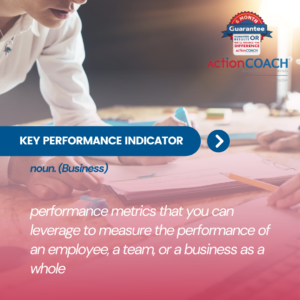The capability to oversee and supervise employee performance well is a vital part of any
successful establishment. However, more often than not, performance management is
misconceived and executed incorrectly, and this incorrect execution causes harm to employee
performance which is why KPIs are established.
Key performance indicators, or KPIs, are performance metrics that you can leverage to measure
the performance of an employee, a team, or a business as a whole. It is the data used to chart a
company on its way to sales and revenue — success.

- DO: Choose KPIs That Align To Your Strategic Business Objectives
Key Performance Indicators must be grounded by your organization’s mission as well as strategic and objective goals. Business performance is relative, and each business has its own short-term and long-term objectives. To address this complex system of goals and indicators, one good practice is to select various KPIs for the different levels of management instead of creating general KPIs. Executive management is most likely concerned with long-term objectives, while operations think more about short-term goals.
DONT: Choose KPIs That Are Not Relevant To Your Business or Industry
Tracking the wrong KPIs would be a total waste of time and effort. Generally, even a “bad” KPI can somehow bring relatively helpful insight into your business operations. Including an irrelevant KPI or two won’t necessarily slow or ruin operations. However, they can lead to unnecessary data complexity that makes it harder to track your real most critical KPIs in the long run.
- DO: Pick Attainable KPIs
Picking a business KPI that is unobtainable and unrealistic would be downright pointless. When assessing the cost or benefit of a particular KPI, check what data points you need to measure this KPI. What processes do you need to implement this data, how much will all this cost, and what are the potential returns?
DONT: Pick KPIs That Are Too Easy To Manipulate
Since KPIs are performance metrics that tell how well you do your job, it brings you either a warning or a recognition. Naturally, people would want to have their performance recognized. Still, when a KPI is too easy to manipulate, it can cause artificial inflation on their performance which is not truthful and useless.
- DO: Select Accurate And Actionable KPIs
Two challenges when picking a KPI are whether it allows the assessment of employees’ progress against stated strategies and presented in a way to incite action.
When selecting KPIs, ask yourself these questions: “Will the KPI reflect and predict business performance? To what extent of accuracy will it be? Can the business control the events grounding the KPI?
DONT: Select KPIs That Are Too Vague
Objectivity and measurability are the two most important factors that need to be considered for every KPI used in a business. If a KPI is too vague, the employees will most likely struggle to meet their goals and lessen employee engagement in the long run. Measurable employee performance metrics that can objectively determine a precise pass or fail assessment make tracking more straightforward and efficient.
Business owners create actionable KPIs while business coaches build actionable plans. If you need help taking your business from where it is now to where you want it to be, leave a comment or join one of our events.





